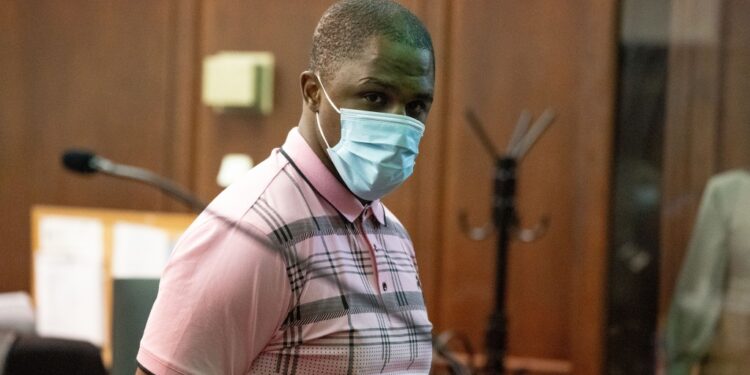Accused subway slasher Kemal Rideout’s rap sheet goes back 15 years, including attempted rape, assault, criminal mischief and forcible touching, plus a serious history of mental illness.
For New Yorkers wondering why he was still walking around, the Legislature has a kind of answer: It just passed the Clean Slate Act, automatically removing older offenses from the public record.
So (if Gov. Kathy Hochul signs the bill) the next time a lunatic left to roam maims or kills, the public won’t realize how badly the system has failed.
What state lawmakers won’t do is address the disastrous “mental health revolving door.”
Rideout, now charged with three counts of felony assault, has five prior arrests in New York; in four of them (including the rape case), per law enforcement sources, he got off by pleading “not responsible” by reason of mental disease or defect.
Which didn’t send him in for mandatory treatment until he was no longer a public menace, but rapidly back to the streets.

Even his own aunt says he’s crazy.
Yet he has been free to terrorize New Yorkers.
Time and again, state lawmakers have refused to make it easier for families, law enforcement or the courts to involuntarily commit dangerously mentally ill individuals for psychiatric treatment.

Instead, Albany’s given us no-bail laws that let wrongdoers (sane or not) avoid jail until trial.
They’re enrolled in alternatives-to-incarceration programs where compliance isn’t enforced.
Heck, the only reason Rideout is sitting in Rikers today is that he counts as a “flight risk” because when nabbed, he was carrying an overnight bag stuffed with clothing and toiletries.
It’s long past time to nail this revolving door shut: Any verdict involving dangerous mental illness should automatically lead to prolonged commitment — with the state funding the thousands of inpatient psychiatric beds needed to make good on such a rule.
We do these sad souls no good by turning them out on the streets.
Think of Jordan Neely, dead on an F train though he was on the city’s “Top 50” roster of homeless people who desperately needed help — people who repeatedly cycle in and out of treatment and shelters.
Mayor Eric Adams is pushing to involuntarily hospitalize more homeless New Yorkers with chronic and untreated mental illness; state and city lawmakers should back him up.
And, yes, expand his pilot B-HEARD pilot program, a non-police response to 911 calls involving suspected mentally ill persons.
No one wants the jails and prisons to substitute for proper treatment of the dangerously mentally ill.
But doing nothing instead, and leaving them loose to endanger the public and themselves, is madness in its own right.



























